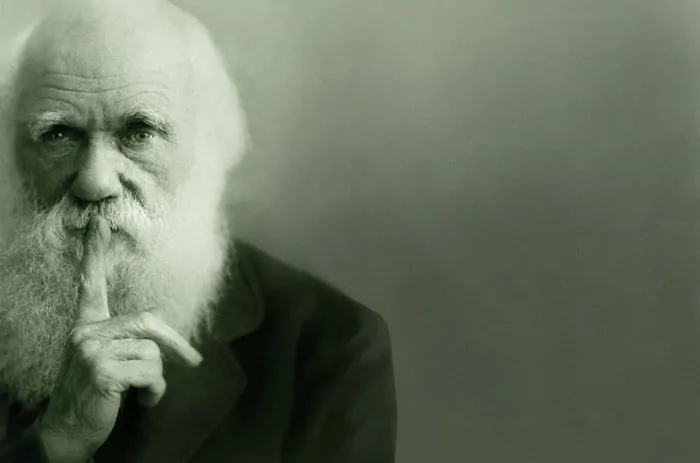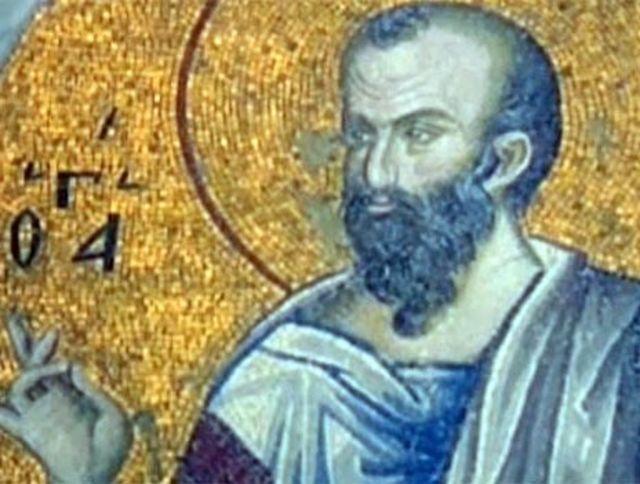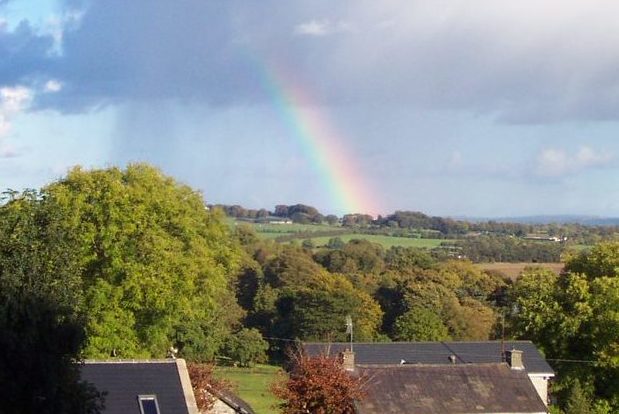
There has been a popular religious refrain in recent years that ask us to consider the simple question: “what would Jesus do”? It’s been popular enough that bracelets and other types of jewelry can be found with WWJD printed on them… What Would Jesus Do?
On the face of it, who could be critical… It seems like an obviously good question. Before I act on some impulse, I should consider how Jesus might act on the same impulse. This would be especially good for someone like me driving in heavy traffic… maybe. What would Jesus do on the N2 on his way into Cape Town… in rush hour… in the rain…
But perhaps Jesus stuck in traffic would act just as I do… Jesus was fully human, after all… And we know he had a temper – just ask those money changes in the Temple.
I don’t think the question, what would Jesus do, is a helpful question – it yields answers that are a bit too simple. A better question might be what is Jesus calling me to do? It’s not important for me to decide how Jesus might act. It is essential that I take responsibility for how I act. I, we, as follower of Jesus are called to model that faith, that love of Jesus in the way we live our lives.
About now you may be asking yourself the question: “What has any of this got to do with the passage from Luke that we just heard?” Good Question. Anytime we wonder what Jesus might be calling us to do, Luke is a great starting point.
Here, from Luke’s Gospel, is a list of what Jesus calls us to do: Love our enemies. Do good to those who hate us. Bless those who curse us. If someone hits us, allow them to strike again. If someone wants our shirt, give even more than a shirt. And Jesus concludes with what we know as the Golden Rule – do unto others as we would have them do unto us.
It is both a familiar list and a daunting list. But keep in mind, the list is more poetry than prose… It’s not a checklist. Hebrew poetry is based on elaborating repetition – how many ways can you find to say the same thing.
Page BreakWe have lots of echoes of this in our English liturgy – “O God you are great. You are glorious. Most holy of holy. Most high above all others.” The Grammar Police built into modern word processing software might encourage us to be concise and avoid repetition… But this repetition is an echo of poetry. And it is likely that poetry was in Jesus’ ear as well.
This list that Jesus gives is not a list we are meant to consult – what’s on and what’s off… It establishes a principle. It gives us a framework. Our task is to go from over-arching principle expressed poetically to the details of our lives. We need to live the poetry.

(public domain)
Charles Darwin, famed observer of animals – and faithful Anglican to boot – saw something common to every living creature he observed. He saw the same response to a threat. Startle a creature, any living thing, and the same response happens. The eyes go wide, the ears go up, the muscles tense, and all the creature’s senses come to full attention. In the animal world when this happens there are two choices: the animal can flee or fight.
In today’s reading, Jesus is calling us to break with all other living creatures. Jesus calls us neither to flee nor to fight, but rather to go beyond what has been demanded. Someone curses you – bless them. Someone strikes your cheek – offer the other cheek. As far as we know, no other animal can make this choice – fight or flight is the total list of options. So, in this passage Jesus is calling us to overcome our animal nature. Jesus is calling us to reflect the very transcendent nature of God.
In fact, Jesus gets right to the point a few sentences later. By doing these things, turning the other cheek, blessing those who curse, and so forth, Jesus tells us that we will be Children of God. This is what Jesus calls us to do.
Sometimes we lose sight of just how radical Jesus tends to be. Paul, in his letter to the Romans, suggests that if we answer evil with good, we will heap hot coals upon the heads of the evildoer. This is not Paul’s original thought – he is quoting Proverbs. In Proverbs we are told that if our enemy is hungry or thirsty, we should give food and water – by doing that we heap hot coals upon their head.

Paul and Solomon are probably not being as harsh as it sounds – “hot coals upon the head” is probably a figure of speech meaning to purify someone – like threatening to wash someone’s mouth out with soap. We know that this is not a literal plan… But still the idea of hot coals is quite at odds with Jesus. Jesus is not interested the purification of someone else. Jesus is interested in our transformation.
In this short section of Luke, Jesus has changed the way the world works. Prior to the coming of Jesus, faithful people understood God to reward the good and punish the wicked. But Jesus envisions a God who kind to the ungrateful and the wicked. God’s mercy, like the rain, falls on everyone, the good and the evil.
Everything the faithful have believed about God has just been stood on its head. But more than that, the wicked in the world are my opportunity to be transformed further into Christ. And not just an opportunity, but really the only opportunity for transformation.
This would have been shocking to faithful people in Jesus’ time. I suggest it is still shocking today. We like to believe that the good folks are rewarded, and the bad folks punished – at least in the long run. And that God’s Kingdom is built by the improvement of sinners. But what Jesus is telling us is that we’re not here to make other people behave better – we’re here to be transformed.
God’s Kingdom is built, it would seem, not by making the bad folks good, but by learning to love those who we think are bad.
This short passage begins with a description of what God’s blessing looks like when we live as Jesus calls us to live. We answer anger with love. We answer poverty with charity. We give without concern for any payback.
But Jesus doesn’t stop there. By the end of the reading here comes more poetry. Do not judge… Do not condemn… Forgive…
What does Jesus call us to do?
To care for those who are poor. To comfort those who mourn. To heal those who are sick. These are all part of our own transformation.
Nowhere do I hear Jesus calling us to celebrate those who are rich beyond measure. At the same time Jesus does not call us to condemn the fabulously rich – or anyone else. Instead, we are not to judge, but to forgive; to love.
This sermon from Jesus in Luke’s telling is a call for us to live like Jesus – to model the behaviors Jesus models. To try to the best of our abilities to live as we believe God would have us live.
It’s tempting to say that Jesus is perfect, and I am not. Nobody who knows me would argue with that… I can’t possibly live as Jesus would live. But that is a simple case of letting the perfect be the enemy of the good. I may not be able to be perfect – not in this world. But I can be better… That is all that God asks – that I try my best. God’s infinite grace takes care of the rest.
When I do my inadequate, imperfect best, I help to build God’s Kingdom on this earth. When we try to live in love as God calls us to live, we provide a worthy example. But more than that, by living in the way that Jesus calls us, we participate in the transformation of our own lives and, in some mysterious way, to the transformation of the whole world.

